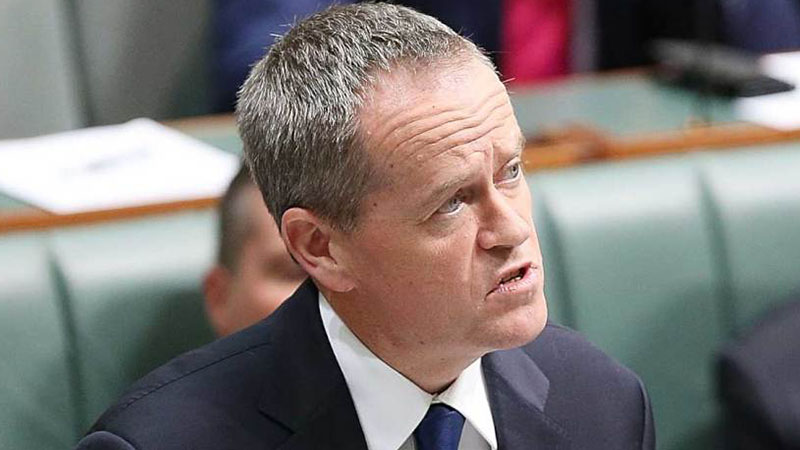Bill Shorten cops heat over attack on deductions for tax affairs
The Institute of Public Accountants has hit back at comments by Bill Shorten last week labelling deductions for managing tax affairs as a “rort” and a “sweet deal” for the wealthy, highlighting the important role these deductions play.
Last week, opposition leader Bill Shorten made it clear that Labor would be pushing ahead with its plans to limit the deductions for the cost of managing tax affairs to $3,000. The measure is also expected to apply to SMSFs in much the same way it will to individual taxpayers.
“One of the rorts we want to shut down – did you know that if you want to deduct millions off your tax, you get your accountant to do it,” said Mr Shorten.
“Did you know you can also claim as a tax deduction the hundreds of thousands dollars you give to your accountant to deduct millions out of the tax system.
“Why on earth is this government defending the ability of the super wealthy to pay their accountants, to minimise their tax and then even claim the cost to pay their accountants,” he added.
“It is a sweet deal, but it has got to stop, this nation can’t just keep funnelling money out of the top end when we have got waiting lists in our hospitals, massive out of pockets for people who have been diagnosed with cancer. It’s about priorities, I’m for middle- and working-class people.”
Both the Institute of Public Accountants and the Chartered Accountants Australia New Zealand (CA ANZ) have since hit back at the attack, with CA ANZ tax leader Michael Croker stating the attack was bottom of the political barrel”, and demanding an apology on behalf of the industry.
“Accountants are one of Australia’s most trusted professions, and for a politician to kick off a campaign by attacking our integrity is, to say the least, a bit rich.
“That said, given we are exchanging free advice now, the political strategy of name-calling an entire profession is questionable and divisive.”
Mr Croker said that, because managing tax affairs covered such a variety of circumstances, it was unlikely that millionaires would be the only taxpayers hit by the proposed $3,000 cap.
“Let’s be clear that it’s not just millionaires who claim more than $3,000 in tax compliance costs – it is also mums and dad’s going through one-off life events,” said Mr Croker.
“It’s the people who invest and need to assess taxation, depreciation, capital gains and other implications. It’s the migrant or expat Australian with foreign income. It is the people who are thinking about a separation or going through a divorce. It is the people making decisions in the lead up to retirement.
IPA chief executive officer Andrew Conway said the proposed cap assumes that a one-size fits all approach works which is simply not the case.
“Labor’s views on this matter shows a lack of understanding about, and respect for, what it takes for an accountant to appropriately manage an individual’s tax affairs. It is not always a matter of a simple tax return; there may be many other factors associated with our highly complex tax system.
“For some, there can be considerable time spent in areas of tax audit, litigation, disputes and other interactions with the ATO.
Mr Conway also noted that further complexities exist with the formation of partnerships, trusts, property acquisitions and disposals.
“These are all factors of a change in someone’s life circumstances which may also include ordinary taxpayers involved in situations like restructuring, divorce and sale of a business, to name a few,” he said.
“To bundle all of this under the heading of ‘managing tax affairs’ does not reflect a genuine picture of a person’s life circumstances and undermines the value of the work performed by accountants.”
SMSF Adviser understands that Prime Minister Scott Morrison and Treasurer Josh Frydenberg have issued a letter to CEOs of the Institute of Public Accountants (IPA), CPA and Chartered Accountants Australia and New Zealand outlining their concerns about the policy.
Mr Conway said the IPA will be disseminating the letter to its members.
“If the opposition provides a response to these concerns, we will also distribute the correspondence to members,” he said.
Commissioner Chris Jordan also previously questioned the basis of the proposal, noting that the millions that Labor were pointing to were probably down to general interest charges in large settlements.
“When people see a quick headline, ‘millionaires paying millions not to pay tax’, there might well be some other reason entirely, like GIC, and I think we’re trying to break that box down now,” Mr Jordan said previously.
“For this one, it is the label on the tax return and in that label, it is not just tax agent fees but penalties and deductible interest. If you’ve got all that GIC and you’ve paid an enormous settlement, you can claim the GIC as a tax deduction, so yes, you might have millions of dollars of income, but I can’t see any rational or even irrational person spending over a million to not pay tax on a million.
“Just like in the work-related expenses area, to give them a better feel to see what is the tax agent fee versus what is the big GIC, and it is the big GIC figure and settlement figures that drive these amounts, but again, policy is formed on a perception.”








